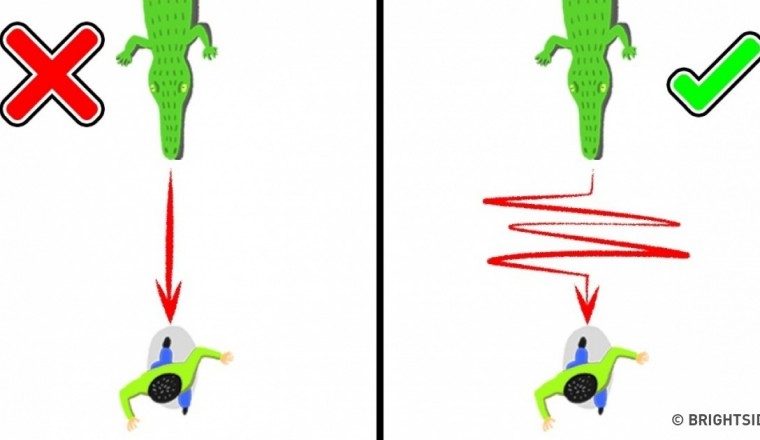
9 Things You Should Know to Survive in a Critical Situation
Anything can happen in life, including situations that threaten it. To prepare you for even the most unforeseen events, Bright Side will tell you 9 rules of survival that will help you cope with difficulties and may even save your life.

If you get lost far away from civilization, your gadget will be useless unless you start a fire from its battery.
Many smartphones and tablets have lithium (Li-ion) batteries. If you pierce such a battery with something sharp, it’ll cause a chemical reaction that results in fire. All you need is to prepare firewood in advance.

When swimming in the sea, we can face a dangerous phenomenon called “rip current“ or simply ”rip." It can appear in any place. When we get caught with it, our instinct tells us to swim to the shore as quickly as possible. But, as a result, we only move away from it.
If you get caught in a rip tide, don’t swim straight to the shore: move diagonally or parallel to it to get out of the current. Rips aren’t wide, so you can swim across them to save your life.

When moving in a straight line, a crocodile can run faster than a human. Yet, due to their short legs and elongated body, they’re clumsy on corners. This is why they won’t pursue a prey they are constantly losing sight of.
If a crocodile chases after you, run in zigzags to escape. And, in general, it’s better to stay as far away as possible from bodies of water where you can meet crocodiles and alligators.

A jellyfish sting can cause neurogenic shock, an allergic reaction, and a strong intoxication of the body. Here’s what you need to do to avoid or relieve the unpleasant consequences of such a meeting:

The rules of 3 are rules that show the average survival of a person under certain conditions.
When things aren’t going well, it’s worth remembering the "rules of 3" and setting priorities.

Let’s say you do repairs at your house: one careless move, and you cut your hand, and there are no bandages left. In this situation, you can use super glue. It not only pulls the ends of the wound together but also disinfects it. However, it’s still better to visit a doctor.

Some people think it’s a good idea to eat snow to quench thirst. Yet it’s better not to do this in a critical situation, and not because you can get a sore throat. The fact is cold snow will cool your body, and it will spend additional energy to keep warm.
You will waste additional energy and freeze more quickly. Rescuers recommend waiting until the snow melts before drinking it.

In a matter of seconds, a frying pan left unattended on the stove can catch fire. This happens if the oil gets too hot. In such a situation, never ever pour water on burning oil. It will make the fire bigger and stronger, and the oil will splash in all directions.
If the flame is small, you can pour baking soda in the pan: it absorbs oxygen. Yet the most effective way to avoid a fire is to cover the frying pan with a dense cotton cloth. An ordinary blanket or a stack of T-shirts from the closet will do.

Many people believe that when you get cut it’s necessary to urgently remove the shard and clear the wound. It’s true. Yet if the wound is deep, you should never remove the object or shard.
It’s just like that children’s trick with water and a plastic bag. Having damaged large vessels, the shard blocks them. But as soon as you remove the object, the wound will start bleeding. Therefore, sometimes it’s better not to touch the place of injury at all until the ambulance arrives.
Illustrator Leonid Khan for BrightSide.me




















Facebook Conversations
Disqus Conversations